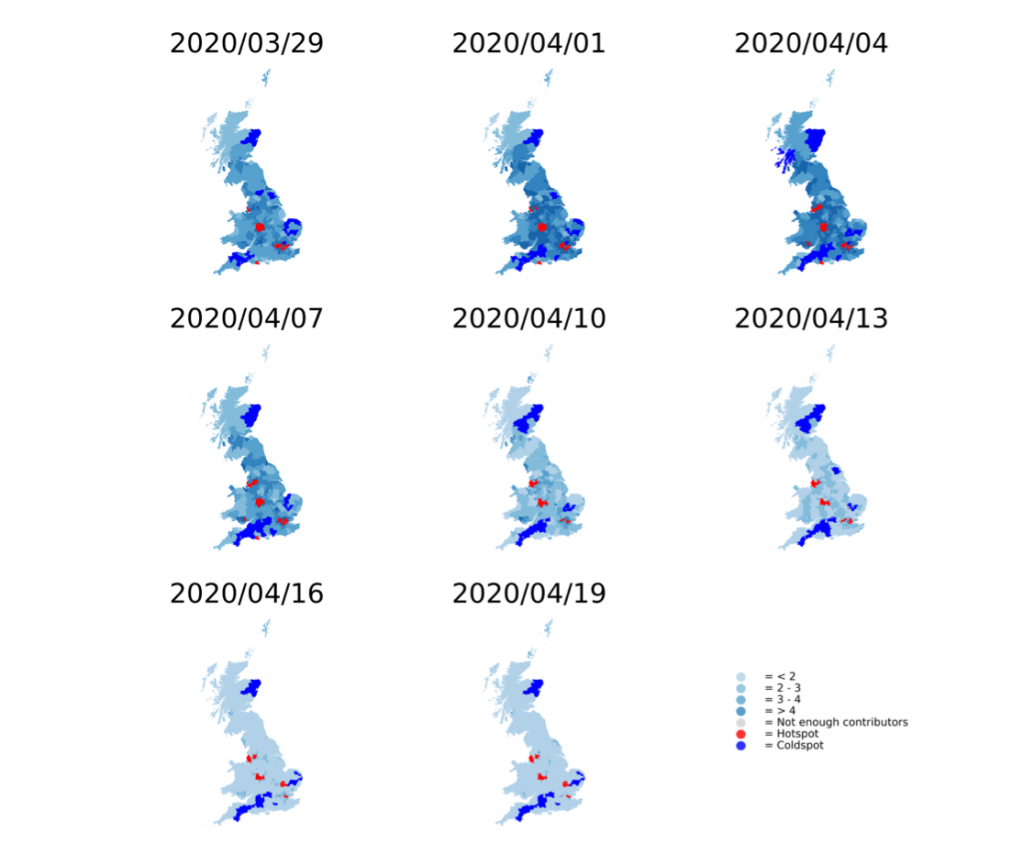29th April 2020

COVID-19 is disproportionally more common and more severe in people living in urban areas and regions of higher poverty, a new study from the Department of Twin Research reports.
These results come from the analysis of the health data logged by more than 2 million people over 24 days on the COVID Symptom Tracker app in the UK.
The team also found that COVID-19 cases and severity has decreased since the lockdown began.
These results illustrate how data from symptom tracking apps can be used to successfully monitor the pandemic over time, helping to identify areas that need more support and healthcare resources to cope.
As part of the response to the COVID-19 pandemic, researchers at King’s College London and healthcare science company ZOE developed the COVID Symptom Tracker app. More than two million UK users nationwide are now using it to report daily updates on symptoms, healthcare visits and COVID-19 testing results.
The team studied 2,266,235 unique app users reporting daily on COVID-19 symptoms, hospitalisation, COVID-19 test outcomes, demographic information and pre-existing medical conditions over 24 days immediately following the introduction of major social distancing lockdown measures announced by Prime Minister Boris Johnson on 23rd March 2020.
On the link between COVID-19 and poverty, lead researcher Dr Cristina Menni said:
“This could reflect that individuals in more deprived areas are more exposed or vulnerable to the virus. It may be that they work in jobs requiring work out of the home, where they are more likely to be exposed to circulating virus. We know from previous research that deprivation is closely linked with increased health issues and disease burden; our results suggest that COVID-19 is no exception.”
Dr Claire Steves, joint senior author said:
“This finding is important for allocation of resources in this pandemic. Areas with higher rates of poverty will need greater supply of PPE and more hospital capacity. This is likely to continue to be important when the social distancing measures are eased.”
The map below shows the identified hotspots in red:

The research paper with the full findings is available in non-peer reviewed archive format at the medRxiv site here.






